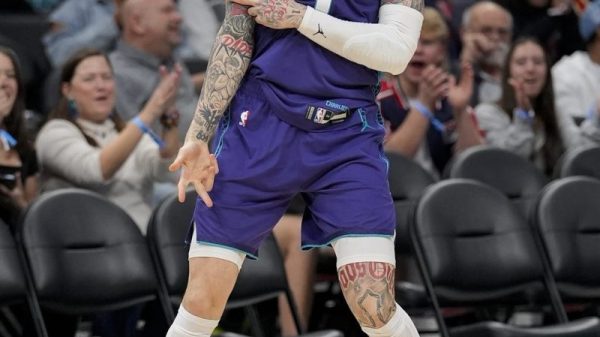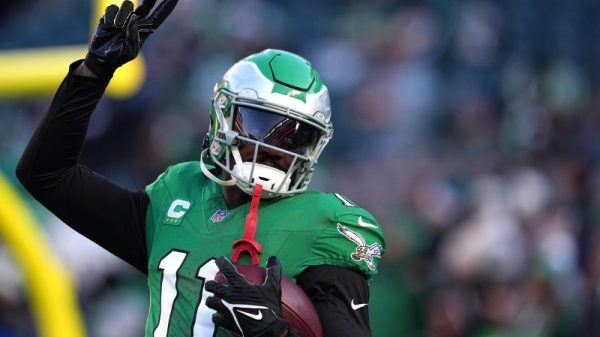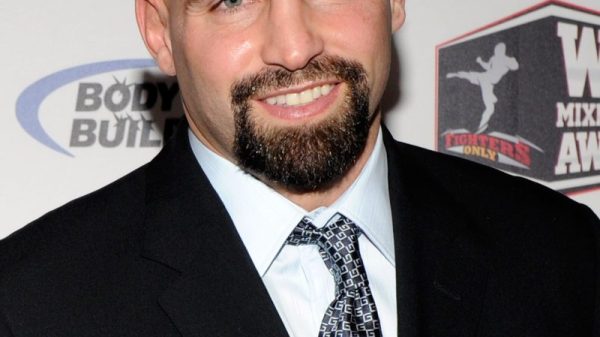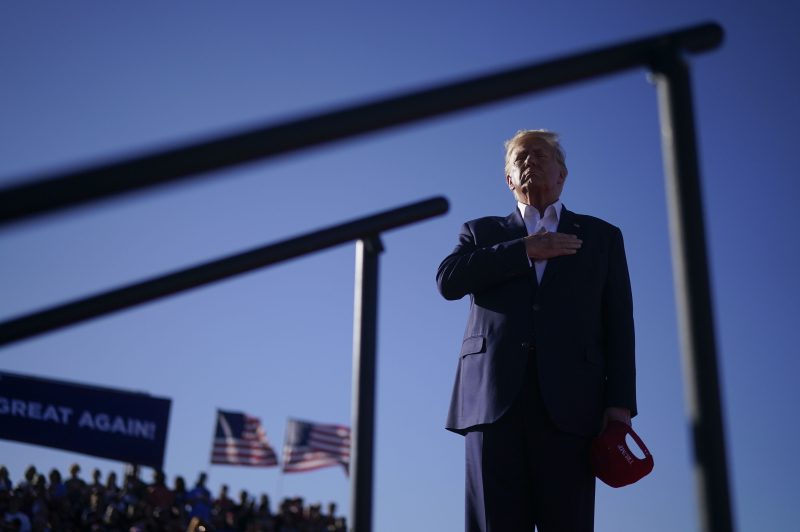Hours after a Manhattan grand jury voted Thursday afternoon to indict Donald Trump, the former president joined with his wife, Melania, his in-laws and conservative radio host Mark Levin on the patio of his private Mar-a-Lago Club for a preplanned dinner. Advisers to his 2024 presidential bid sat nearby, and Trump chatted with both groups, as well as club members offering their encouragement.
At one point, Trump showed off his soon-to-be-released book of letters between himself and celebrities and world leaders. At another, he began calling congressional Republicans, promising to fight the indictment and relishing their declarations of support.
Yet in the immediate aftermath of the grand jury’s decision related to hush money paid to an adult-film star, Trump was not happy, said one person with direct knowledge of his reaction. Others described Trump as “upset,” “irritated,” “deflated” and “shocked,” though some noted that he also remained “very calm” and “rather stoic, actually.”
Trump — who played golf at his Palm Beach estate Friday, with plans to play again over the weekend — is expected to fly to New York on midday Monday. He will spend the night at his Trump Tower home before surrendering himself in Lower Manhattan on Tuesday.
“He’ll do Trump,” said David Urban, a longtime Trump adviser who is not working on his 2024 campaign. “He’ll show up. He’ll be indignant.”
The playbook Trump executed in the immediate aftermath of an unprecedented moment in American history — the first ex-president, ever, charged with a crime — is one that, for him at least, has become almost routine. Since first positing — incorrectly — on his social media platform almost exactly two weeks ago that he would be arrested in a few days, Trump has cycled through a range of emotions and postures, both public and private.
He has been angry and even threatening, attacking Manhattan District Attorney Alvin Bragg on his Truth Social site and warning of “potential death & destruction” if he was charged. He has been both resigned to and disbelieving of a potential indictment, at points behaving as if he could single-handedly disappear the ongoing investigation through some combination of magical thinking and public pressure.
And he has become, eventually, defiant — portraying himself as a hunted victim and leveraging the controversy as a political weapon.
Trump — a former reality TV host who is seeking to win a second term in the White House in 2024 — has already begun privately musing about the indelible images that will likely emerge from his day in court Tuesday, talking about everything from his mug shot to possible perp walk and how he can use the moment to convey defiance.
This portrait of Trump facing down a historic indictment is the result of interviews with 15 Trump advisers, lawyers, confidants and other officials, many of whom spoke on the condition of anonymity to candidly share details of private conversations.
“He initially was shocked,” said Joe Tacopina, a Trump lawyer, on NBC’s “Today” show Friday. “After he got over that, he put a notch on his belt and he decided we have to fight now, and he got into a typical Donald Trump posture where he’s ready to be combative on something he believes is an injustice.”
“His knees don’t buckle,” Tacopina added, “so he’s now in the posture that he’s ready to fight this.”
Another longtime Trump adviser was blunter, describing the view among Trump advisers that the indictment is “political gold in a primary” and “definitely political gold for fundraising.”
“No one wants to get indicted, but if you are going to get indicted, do you know how much that picture is worth in a primary, for ads and for fundraising?” this person said.
Trump’s legal and campaign team had spent weeks preparing for an expected indictment. They had researched lines of attack against Bragg and Michael Cohen, Trump’s former attorney and fixer who is believed to be one of Bragg’s key witnesses. They had drafted possible statements and fundraising appeals to push out, as well as a broad plan for Trump’s allies, both legal and political, to blanket television and radio airwaves.
Yet Trump’s lawyers were nonetheless caught off-guard when the news actually came. Some had become so certain that there would be no movement on the investigation in the short term that they had been preparing to take time off, while others — including adviser Boris Epshteyn, who is playing a lead role on Trump’s legal team — had advised Trump that he would not be indicted at all.
Trump’s legal team broke the news to him by phone Thursday, and then began scrambling to prepare for the coming days.
The former president asked about the logistics of being arraigned, and spoke with his lawyers about what the proceedings would look like.
When initially preparing for Trump’s possible indictment, Secret Service agents had expressed concern that Trump might opt to be arrested; they disliked the safety issues raised by him being handcuffed by police rather than being accompanied by Secret Service agents, said a law enforcement official familiar with the planning. Since then, the Secret Service has been comforted to learn that Trump plans to surrender rather than be arrested.
Trump also huddled with his political advisers and talked to members of Congress about how the charges might help him in a Republican primary.
Trump’s advisers and lawyers, however, have also viewed some of Trump’s more extreme posts on Truth Social to be problematic, including one last month in which he shared an image of him wielding a baseball bat next to a photo of Bragg. (Trump later claimed to Fox News’s Sean Hannity that he wasn’t aware of the image he’d shared).
The political downside is likely to come in a general election, many strategists say, where the electorate — including some more moderate Republicans and independents — has long signaled it is exhausted by the chaos and controversy in which Trump thrives. But for now, he remains unbowed, unconcerned that endless news cycles about paying hush money to an adult-film star could harm him politically.
“He has never been concerned about any story that paints him as a moral reprobate,” one Trump ally said. “His whole life and career have been full of those stories and they’ve never harmed him, in his mind.”
On Friday, the Trump campaign distributed an email collecting statements from six governors, 26 senators, House Speaker Kevin McCarthy (R-Calif.) and 63 other House Republicans, and 10 state attorneys general, proclaiming “united support” from the party. Trump’s super PAC released a poll showing overwhelming support among Republican primary voters and posted a video that received more than 1 million views on Twitter.
His team also immediately began using the news to fundraise. In one email to supporters Friday, Trump warned that “our justice system has utterly COLLAPSED.” He went on to ask for a $1 contribution “to cement your place in history and accept YOUR membership as a FOUNDING DEFENDER OF PRESIDENT DONALD J. TRUMP AGAINST THIS WITCH HUNT.”
Friday evening, the campaign sent out a press release claiming Trump had raised more than $4 million in the 24 hours after the indictment, including more than 25 percent of donations from first-time donors.
In addition to the Manhattan district attorney’s case against Trump, the former president is facing three other ongoing investigations — one in Fulton County, Ga., and two under the direction of special counsel Jack Smith. Trump’s allies and advisers believe the Manhattan case against him is especially weak, and will backfire both politically and legally. But some of his lawyers privately view the other cases as stronger — and fear a situation where they are battling multiple indictments in multiple jurisdictions.
“This is the lowest point in history for our criminal justice system,” said Chris Kise, one of Trump’s lawyers. “What was once the most respected and revered district attorney’s office in the nation has been fully bastardized by an opportunistic politician seeking, like many others, to cash in on the Trump brand.”
Added Trump campaign spokesman Steven Cheung: “This is nothing more than political persecution and, just like with every other hoax that President Trump has been targeted with, there is no crime, except for election interference through weaponization of our justice system against President Trump and his supporters.”
Trump and his team have not decided yet what arguments to make or which lawyers will speak during his arraignment Tuesday, in part because they have not seen the indictment or evidence.
Despite Trump’s desire for iconic images, his aides have been trying to convince him to make the trip to New York a quick one and avoid any public appearances or news conferences, citing safety risks — and so far, Trump seems inclined to oblige. They also hope to have him back out on the campaign trail by the end of next week.
As the news broke Thursday, many of Trump’s top advisers — including Cheung, Chris LaCivita, Jason Miller and Susie Wiles — were with him at Mar-a-Lago. But some of his team planned to leave the club this weekend and acknowledge that the current strategy may change.
“Trump is Trump,” one quipped.
But the defiant posture seems likely to remain. In a statement, Taylor Budowich, the head of MAGA Inc., railed against the indictment and promised it would deliver Trump another stint in the White House.
“For the sin of putting America first, the Democrats and billionaires are weaponizing government to try and stop him,” Budowich wrote. “They will fail, he will use this politically-motivated indictment to propel his campaign to an historic landslide victory, and with four more years, he will Save America.”
Jacqueline Alemany, Isaac Arnsdorf and Carol Leonnig contributed to this report.



























